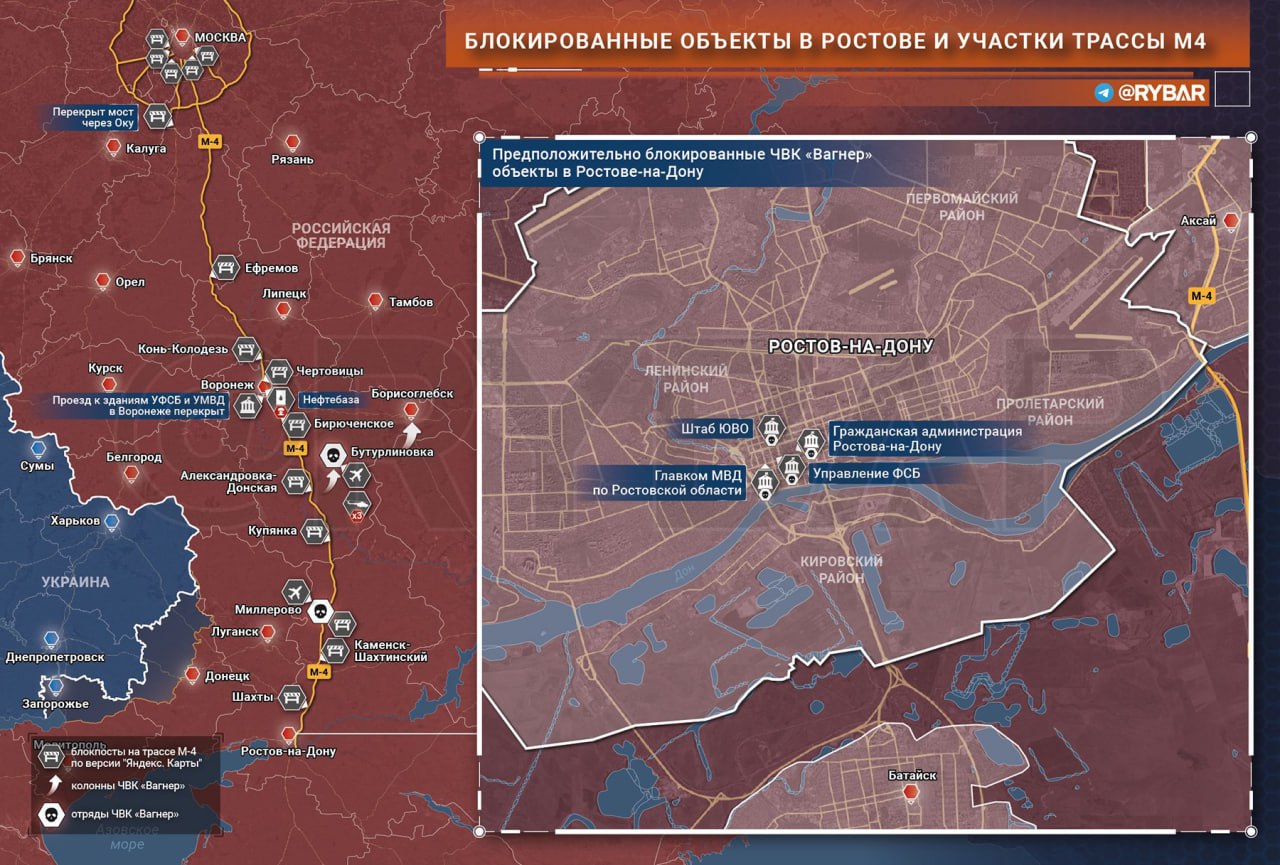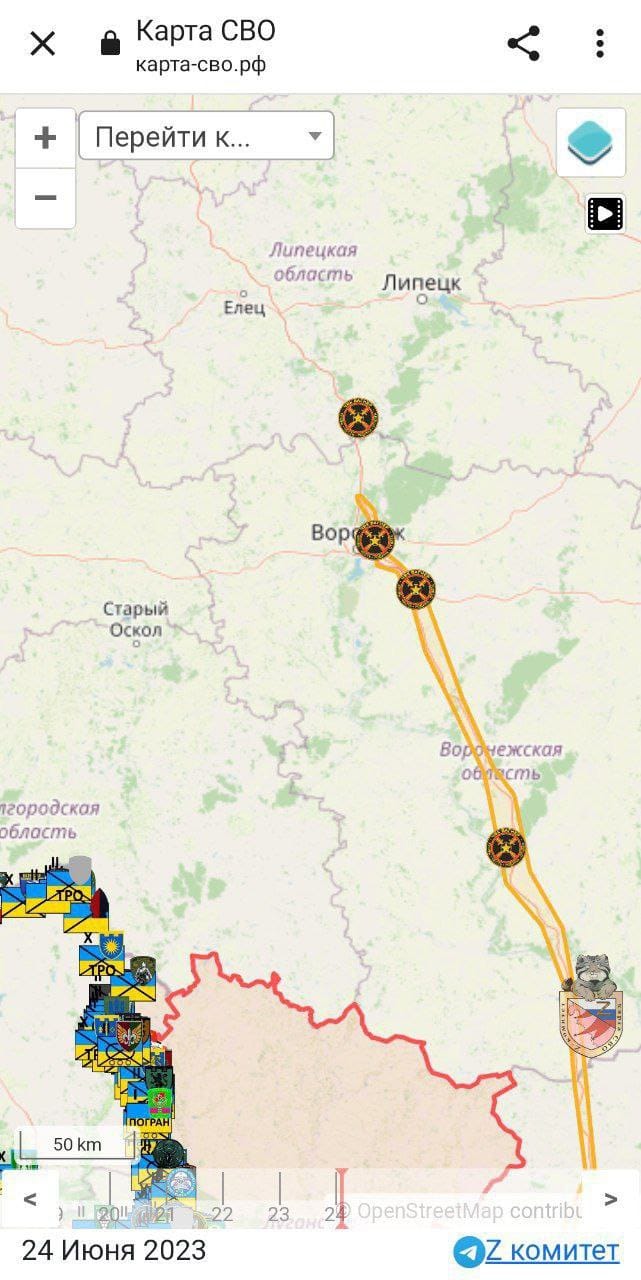
- The columns moved around - towards Buturlinovka and Borisoglebsk . There was no information about the occupation of the airfield.
- Aviation continues to strike at the columns. PMC. By this hour, it is known about the loss of three aircraft of army aviation. Information about the downed transport aircraft is not confirmed.
- In Voronezh itself, an oil depot is on fire: this is probably a consequence of a Ukrainian UAV strike.
- In Rostov , contrary to the statements of PMCs, the departments of the FSB and the Ministry of Internal Affairs were not occupied, but only blocked. At the moment, Rostov is only under the partial control of the Wagners, the planned work of all military command and control bodies continues.
- To the south of Moscow, all possible routes of movement of PMCs are blocked.



I just don’t see how a mercenary army doesn’t have US agents in it. I imagine that, like China, Russia has incredibly well-honed state apparatus for identifying and purging North Atlantic spies. But I imagine mercs are a bit more porous and have different immune systems.
They might but at least right now that doesn’t seem like the main trigger for this event.
I don’t know if it needs to be a main trigger. I’m not a big fan of those sorts of analyses. I’m looking for what the consequences are if this particular event a) was foreknown by North Atlantic strategic command and b) what opportunities the foreknowledge would afford North Atlantic interests, especially if there are North Atlantic operators inside the event.
Of course. My analysis is nowhere near comprehensive but I just think we don’t know enough yet to really go further without heavy speculation.
I think the speculative hypothesizing is valuable because it can help us look for corroborating evidence or invalidating evidence. The speculation would need to be focused on an analysis of interests served, not merely hearsay or what is reported, but rather a material analysis of who benefits and how.